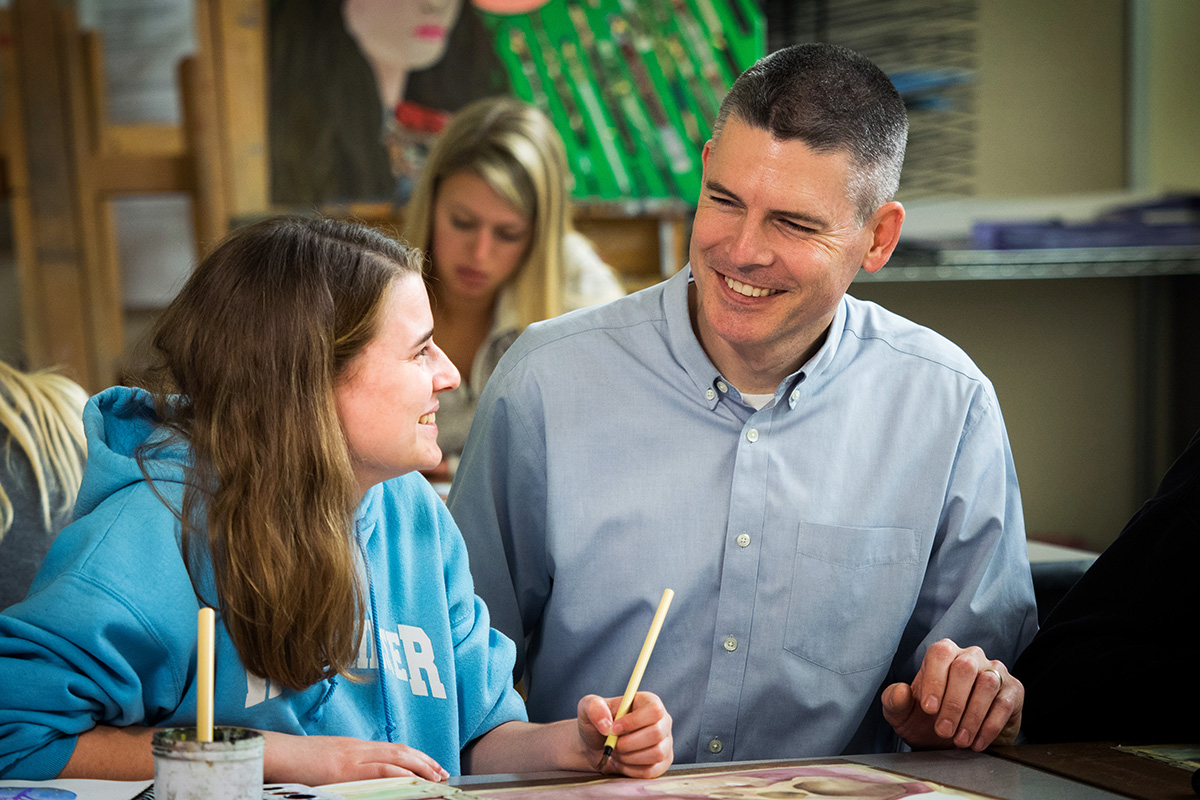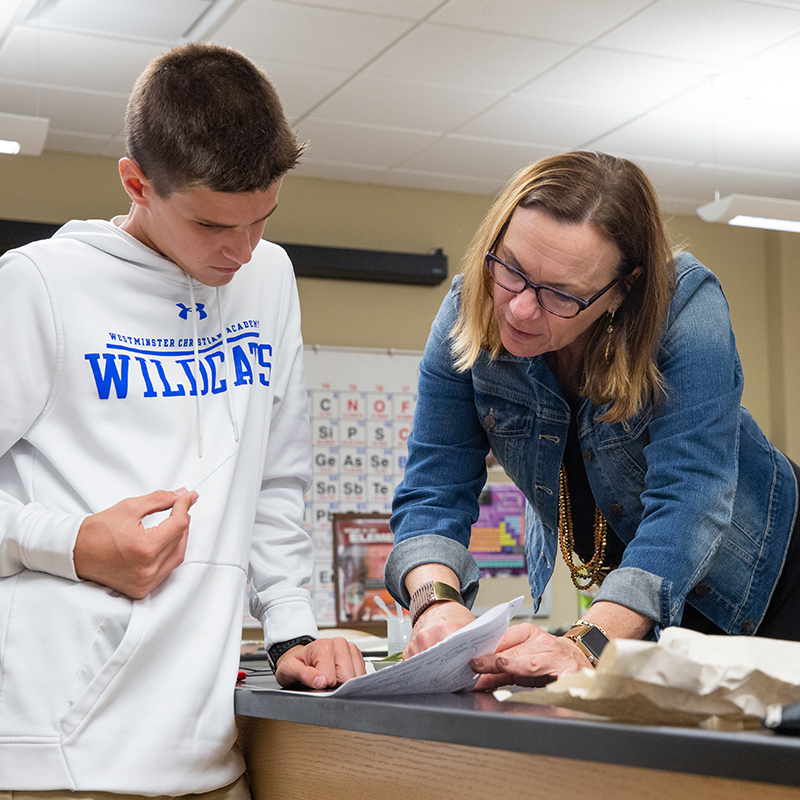Westminster Way of Teaching

An Education that Reaches Higher
All schools hope to produce students familiar with a wide range of information from broadly based fields of study. All schools hope to produce students of good character with a finely tuned sense of social responsibility. But as outlined in our mission statement, the purpose of education at Westminster Christian Academy is much larger.
As a school shaped by the Reformed tradition, Westminster is committed to preparing students to uncover and use their God-given gifts so that they may offer hope and healing to a world badly in need of both. It is not enough that students know the intricacies of mathematics or science or music; they must grasp how these disciplines—and every other discipline—have been created by God to help us understand the beauty of His creation, the tragedy of the Fall, and the importance of their commitment to restoration and reconciliation in whatever sphere of influence God places them.
Teachers who embrace this task must recognize three fundamental principles immediately:
- Whatever their aptitudes or talents, all students have been created in God’s image and must not only be treated with the dignity that is inherently theirs but given the chance to exercise their unique gifts as well. Therefore, Westminster must honor the divinely ordained abilities of all students and offer a program that provides students with diverse skills and interests an opportunity to thrive.
- Education must be more than the dissemination of information. Information is important; students must grasp the “who?”, “when?”, “what?”, and “where?” if they are to discover their place in God’s world. But this is a springboard to a personal understanding of how the information connects with them and how they can use it to make a difference in this world.
- Students must recognize that while all knowledge and wisdom comes from God, Christians do not have a monopoly on truth. Therefore, it is appropriate and fitting that students explore how God has used Christians and non-Christians alike to reveal how He has shaped the world and has acted to influence the lives of men and women throughout the ages.
Professional Development
Our strong belief in our mission means we care deeply about the training of our faculty. Through the Center for Teaching and Learning (CTL), we communicate a consistent message of our beliefs about education so that the entire faculty understands both what effective instruction looks like and how best to facilitate student achievement at Westminster. CTL programs include a two-pronged induction program, a mentoring program, an evaluation program, and an on-going professional development program.
The principles below outline our educational beliefs communicated to our faculty:
Community
- The relationship between the student and the teacher is central to effective teaching.
- No teacher can impact every student, master the profession, or stop learning. Therefore, collaboration is a part of the ethos of Westminster as teachers work together to grow personally and professionally.
- Teachers are highly encouraged to become involved in the life of the school beyond their classroom.
Classroom Practice
- Create learning opportunities that require students to wrestle with difficult concepts and skills.
- Be more than dispensers of facts and formulas. Create activities that challenge students to think about the issues and questions of life and culture that matter deeply.
- Utilize a variety of instructional techniques to meet the needs of students.
Good teaching takes many forms. The question each teacher must ask themselves is, “Are all of my students learning?” - Assessments should be viewed as a diagnosis of a student’s progress, not the sole measure of his or her level of academic achievement.
- Students must be allowed to wrestle with critical questions. Therefore, we recognize that coverage of material may need to be sacrificed in the interest of digging deeply into life’s larger issues.
- Literacy in each discipline takes on a unique flavor. Equip students with the tools to become literate by helping them understand the specific vocabulary, strategies, skills, and critical questions of the discipline.
- Make connections between disciplines in an effort to synthesize them into a comprehensive perspective of biblical truth.
Teaching from a Reformed Perspective
- Teaching shapes lives, influences culture, and prepares the next generation for their role in the kingdom of God.
- The discovery of talents and gifts and the opportunity to develop those gifts in order to play a redemptive role in the home, church, and community is crucial to a child’s education.
- All truth is God’s truth; non-Christians and Christians alike can shape our understanding of God’s world. Secular ideas are not dangerous in the context of a guided discussion led by a thoughtful Christian teacher. In this context, they can serve as a bridge of communication and understanding for Christians seeking to be agents of redemption in a fallen world.

